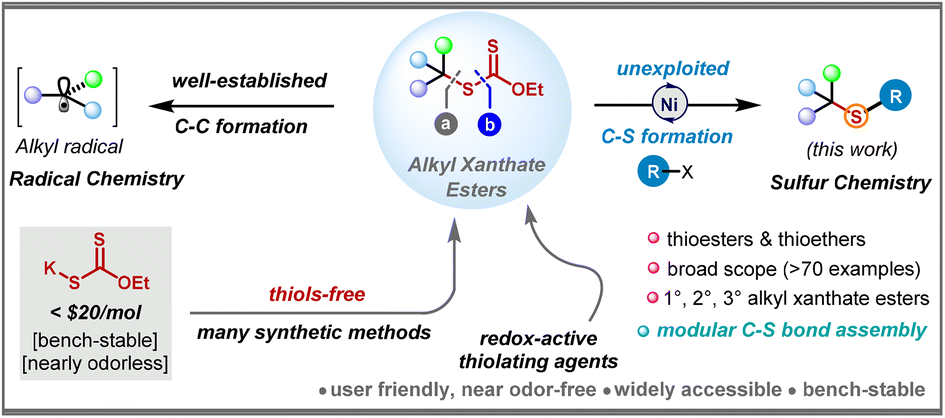Emerging Investigator: Liang-An Chen
 |
2008–2011 Xiamen University M.Sc. 2004–2008 Fuyang Normal University B.Sc.
|
Read Liang-An Chen’s Emerging Investigator Series article in Organic Chemistry Frontiers and learn more about him.
| Redox-active alkyl xanthate esters enable practical C–S cross-coupling by nickel catalysis | ||
|
|
A new nickel catalysis strategy that harnesses readily accessible alkyl xanthate esters, while previously well-studied as alkyl radical precursors, herein as ideal sulfenylating agents via an unprecedented C–S bond activation pattern. |
|
 |
||
| From the themed collection: OCF Emerging Investigator Series | ||
| The article was first published on 11 Apr 2023 | ||
| Org. Chem. Front., 2023, 10, 2505-2516 | ||
| https://doi.org/10.1039/D3QO00136A | ||
My research interests
| Key words: asymmetric catalysis, diene chemistry, alkene difunctionalization, oxidative cyclization, radical chemistry |
| My current research interests focus on methodology development, aiming to achieve transition metal-catalyzed asymmetric conjugated dienylation of propargyl alcohol derivatives (PADs) in a high regio-, chemo- and stereoselective manner and to explore their application in the development of new functionalization reactions based on the two conjugated C–C bonds. |
10 Facts about me
| My favorite time of the day is the morning because I can enjoy reading the ASAP articles or the tweets on the public accounts.
What I look for first in a paper are insightful thoughts and challenges in the area. If I were not an organic chemistry professor, I would be a historian or soldier. In my spare time, I love playing games and sports with my two sons and traveling with my family. The most difficult challenges I have faced were starting my independent research career and establishing an innovative and unique research program. The first academic article I published in my independent research career is in Angewandte Chemie. This paper shaped the research interests of my group. The most challenging work in my research is to achieve the asymmetric 1,3-dienylation of PADs with different carbon-based nucleophiles with high selectivity. My advice for younger students is that hard work, persistence, strong will, and thinking more independently are key to success in their beginning research career. An accomplishment I’m particularly proud of is that my students have become who they want to be after graduation. The next goal of my research is to achieve structurally diverse conjugated dienes from PADs and to explore their further application in the synthesis of complex molecules with industrial needs. |











